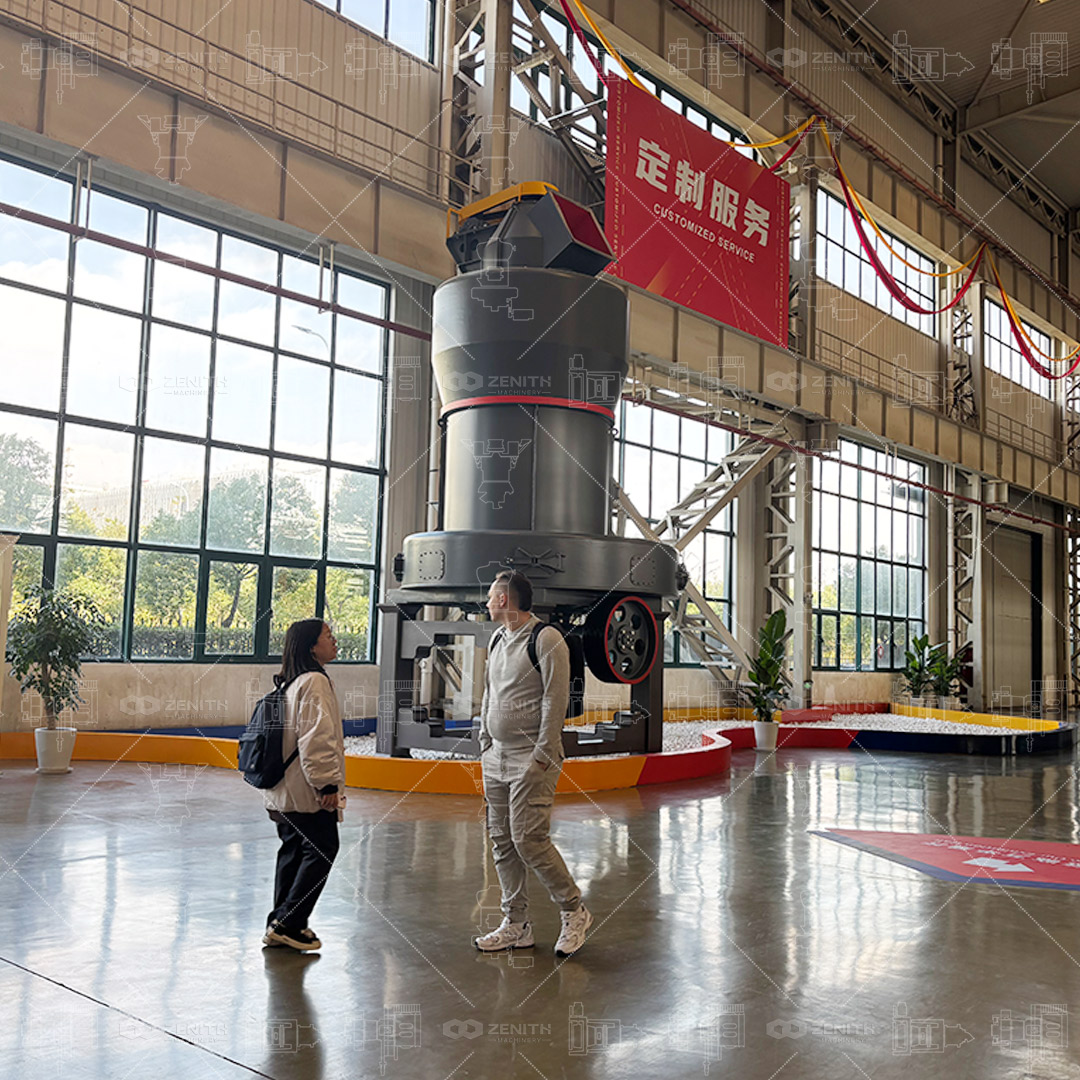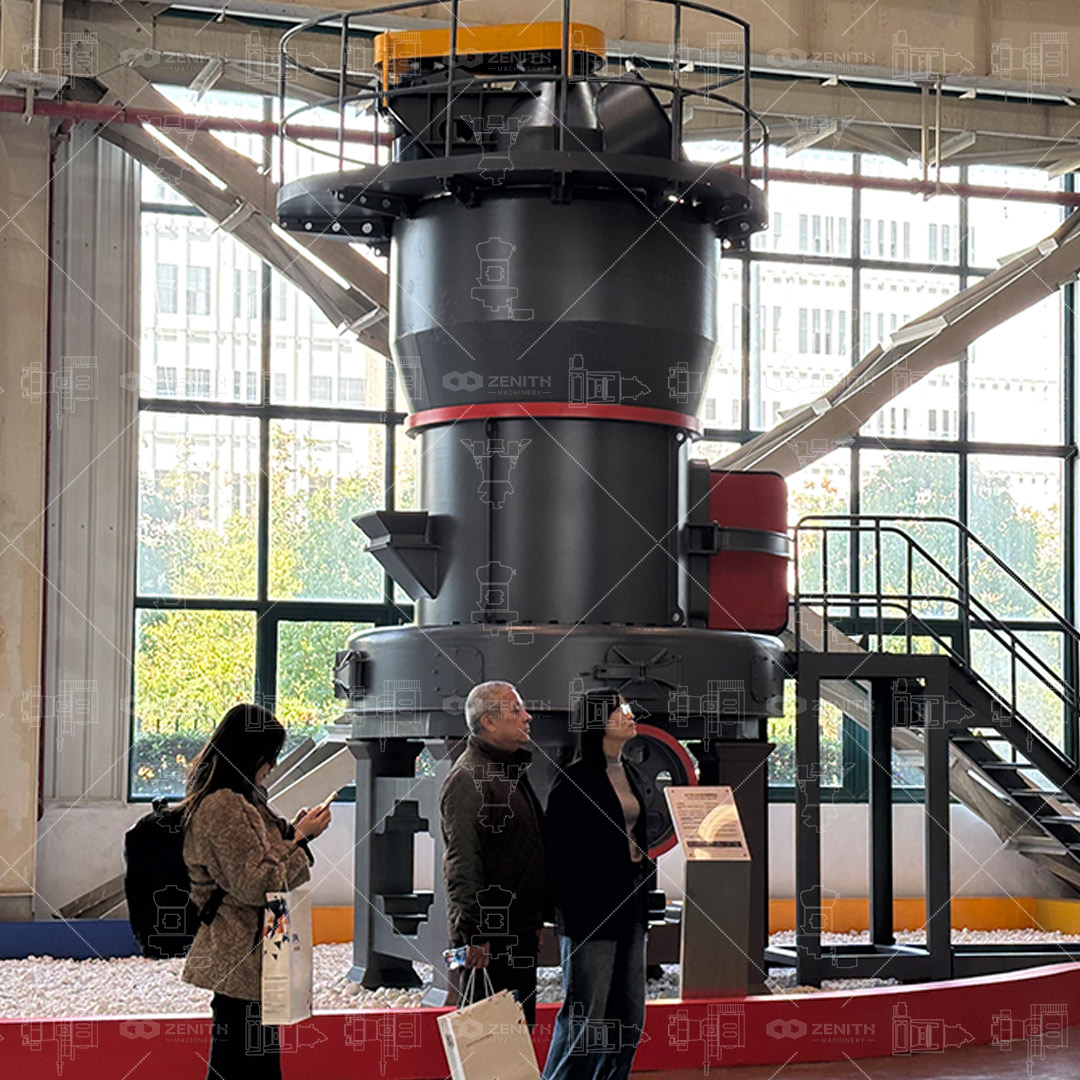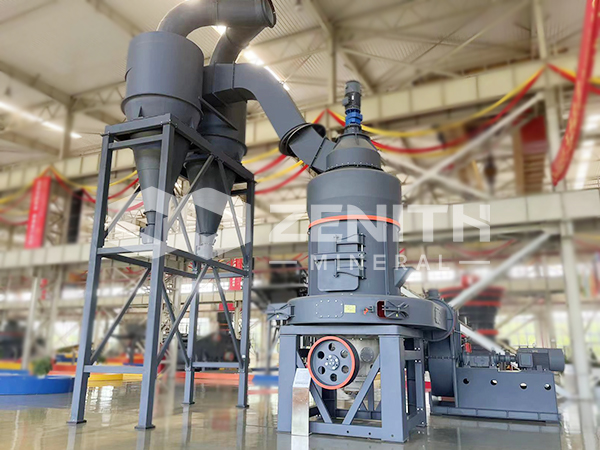Price of equipment for grinding fluorogypsum to 200 mesh with a production capacity of 5 tons per hour
2025-11-20 06:58:14
When evaluating the cost of equipment for grinding fluorogypsum to 200 mesh with a production capacity of 5 tons per hour, several technical and economic factors must be considered. As a leading manufacturer of industrial grinding equipment, Zenith offers multiple solutions that balance performance, efficiency, and investment requirements.
The primary consideration for fluorogypsum processing is achieving consistent 200-mesh fineness while maintaining 5 TPH throughput. This specific application requires equipment capable of handling gypsum-based materials with moderate moisture content and ensuring uniform particle size distribution for downstream applications.
_1763593094296.jpg)
Recommended Equipment Options
For this production requirement, our MTW European Trapezium Mill presents an optimal solution. With a capacity range of 3-22 T/H and output fineness adjustable between 30-325 mesh, it comfortably meets both the production rate and fineness specifications. The MTW series demonstrates particular efficiency in processing gypsum-based materials, offering 60% lower energy consumption compared to traditional ball mills.
The investment for an MTW mill configured for 5 TPH fluorogypsum production typically ranges between $85,000 and $120,000, depending on auxiliary equipment selection and automation requirements. This includes the main grinding unit, classifier, dust collector, and feeding system.

Alternative Solutions
For operations requiring higher flexibility, our Raymond Mill provides another viable option. With output fineness ranging from 10-325 mesh and capacity up to 22 T/H, it can efficiently handle the 5 TPH requirement at 200 mesh. The Raymond Mill offers lower initial investment, typically between $45,000 and $75,000 for a complete system, while maintaining 99% screening efficiency.
For operations anticipating future expansion into ultrafine grinding, the XZM Ultrafine Grinding Mill represents a forward-looking investment. While capable of producing 325-3250 mesh powder, it can be configured for 200 mesh operation at 5 TPH capacity. The premium for this flexibility adds approximately 15-20% to the equipment cost compared to the MTW series.
Key Cost Factors
Several elements influence the final equipment price:
- Automation Level: Basic manual control versus full PLC automation can affect price by 20-30%
- Material Handling: Integrated feeding and conveying systems add $15,000-$25,000
- Dust Collection: High-efficiency pulse jet dust collectors range from $8,000-$15,000
- Classifier Options: Advanced classifiers for precise particle control add $10,000-$18,000
- Installation Services: Professional installation and commissioning typically cost 10-15% of equipment value
_1763593094302.jpg)
Operational Cost Considerations
Beyond the initial equipment investment, operational costs significantly impact total cost of ownership. Our MTW and MTM series mills consume approximately 60% less energy than equivalent ball mills, translating to annual electricity savings of $12,000-$18,000 for continuous operation.
Maintenance costs for trapezium mills typically run 30-40% lower than traditional grinding systems due to reduced wear part consumption and easier access for servicing. The modular impeller adjustment system allows for quick fineness changes without major downtime.
_1763593094304.jpg)
Project Implementation Timeline
A complete fluorogypsum grinding system typically requires 8-12 weeks from order to commissioning. This includes manufacturing (6-8 weeks), shipping (2-3 weeks), and installation (1-2 weeks). Zenith's global service network ensures local technical support during installation and operation.
All our grinding equipment comes with ISO 9001, CE, and CU-TR certifications, ensuring compliance with international quality and safety standards. Our overseas offices in more than 30 countries provide ongoing technical support and spare parts availability.

Return on Investment Analysis
For a 5 TPH fluorogypsum grinding operation running 16 hours daily, the typical payback period for Zenith equipment ranges from 18-24 months. This calculation considers equipment cost, energy savings, maintenance reductions, and increased production efficiency compared to older grinding technologies.
The final equipment selection should balance initial investment against long-term operational efficiency, maintenance requirements, and potential production expansion. Our technical team can provide detailed proposals based on specific site conditions and production requirements.
_1763593094307.jpg)
Frequently Asked Questions
What is the typical delivery time for a complete 5 TPH fluorogypsum grinding system?
Standard delivery time is 8-12 weeks from order confirmation, including manufacturing, testing, and shipping. Expedited delivery may be available for urgent projects.
Can the same equipment be used for other materials besides fluorogypsum?
Yes, our grinding mills are versatile and can process various non-metallic minerals including limestone, calcite, barite, and other gypsum products with minimal adjustments.
What kind of after-sales support does Zenith provide?
We offer comprehensive after-sales support including installation supervision, operator training, technical documentation, and spare parts supply through our global network of 30+ overseas offices.
How does the energy consumption compare to traditional ball mills?
Our MTW and MTM series mills consume approximately 60% less energy than traditional ball mills of equivalent capacity, significantly reducing operational costs.
What maintenance frequency is required for continuous operation?
Routine maintenance is recommended every 500-800 operating hours, with major inspections annually. Wear parts typically last 6-12 months depending on material abrasiveness.
Can the fineness be adjusted during operation?
Yes, our mills feature modular impeller adjustment systems that allow fineness changes from 80-400 mesh without stopping production.
What environmental standards do your grinding systems meet?
All our equipment meets international environmental standards with pulse dust collectors ensuring dust emissions below 20mg/m³ and noise levels below 75dB.









